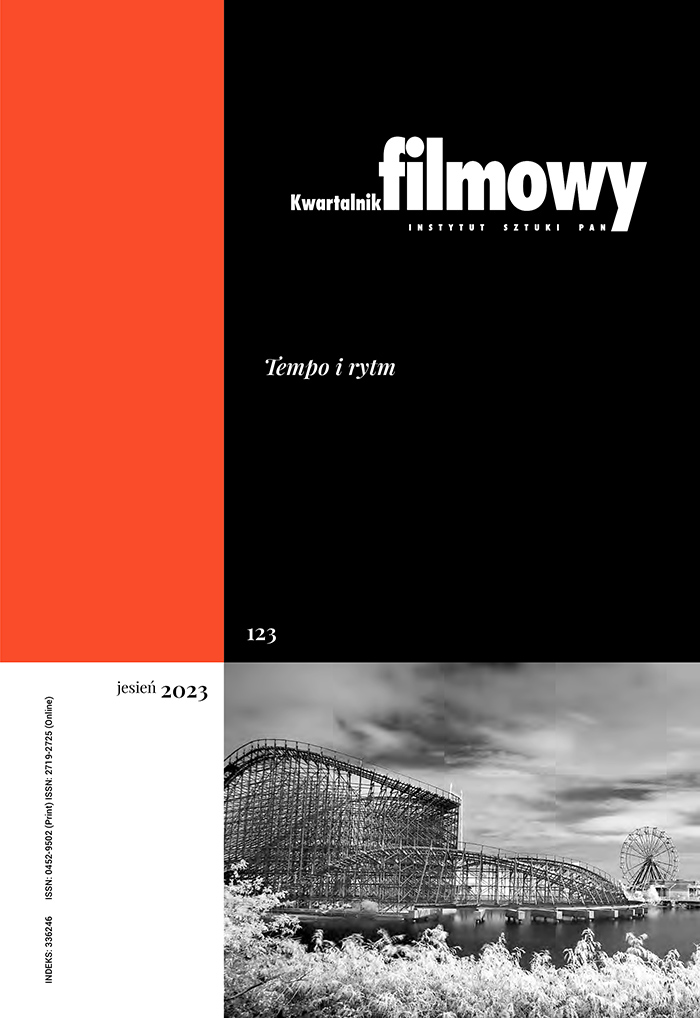Affective Rhythms:
Experience of Trauma
in Alan Clarke’s Films
from the 1980s
Affective Rhythms:
Experience of Trauma
in Alan Clarke’s Films
from the 1980s
Author(s): Karolina KosińskaSubject(s): Film / Cinema / Cinematography, Sociology of Art, History of Art
Published by: Instytut Sztuki Polskiej Akademii Nauk
Keywords: Alan Clarke; trauma; affect; rhythm; British cinema; Northern Ireland;
Summary/Abstract: Alan Clarke’s films from the 1980s are usually characterized as radical tests of the boundaries of social realism and narrative minimalism. As such, they have been describedas highly political, although their political potential re-lates primarily to form rather than content (plot or story).Clarke’s critical approach to current affairs in Britain leadsnot only to a stark and pessimistic diagnosis of the stateof the nation and the country but also to an analysis of thenational and social traumas of the 1980s. Specific formaland narrative strategies employed by the director are high-ly affective – he uses intersecting patterns of different, per-sistent, and repetitive rhythms, visual, aural, and temporal,not to convey an intellectual meaning but rather to affectthe viewer, to immerse them in a kind of trance-like expe-rience. The author uses Jill Bennett’s reflections on traumaand affect in art to analyse the rhythmic designs of two ofClarke’s films: Road (1987) and Contact (1985).
Journal: Kwartalnik Filmowy
- Issue Year: 2023
- Issue No: 123
- Page Range: 50-73
- Page Count: 24
- Language: English

